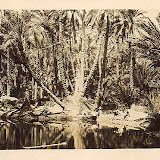06- Treaty of Peace between Great Britain and Tunis - 1662
Article of Peace between his Sacred Majesty Charles the Second, King of Great Britain, France, and Ireland, and the most excellent Signor Mahomet Bacha, the Duan of the noble City of Tunis; Hadgie Mustapha Dey Mahomet By, and the rest of the Soldiers in the Kingdom of Tunis; concluded by Sir John Lawson, Knight, the 5th October 1662. I – That all former grievances, losses, or other pretences, between both parties, shall be void and of none effect; and from henceforward a firm peace, free trade and commerce, shall be and continue between the subjects of his Sacred Majesty the King of Great Britain, &c. and the people of the kingdom of Tunis and the dominions thereunto belonging and that the ships of either party shall have free liberty to enter into any port or river belonging to the dominions of either party, paying duties only for what they shall sell, transporting the rest without trouble or molestation; and freely enjoyed any other accustomed privilege; and the late exaction which hath been on the lading and unlading of goods at the Gulletto or Marrin shall be reduced to the ancient customs in these cases.
I – That all former grievances, losses, or other pretences, between both parties, shall be void and of none effect; and from henceforward a firm peace, free trade and commerce, shall be and continue between the subjects of his Sacred Majesty the King of Great Britain, &c. and the people of the kingdom of Tunis and the dominions thereunto belonging and that the ships of either party shall have free liberty to enter into any port or river belonging to the dominions of either party, paying duties only for what they shall sell, transporting the rest without trouble or molestation; and freely enjoyed any other accustomed privilege; and the late exaction which hath been on the lading and unlading of goods at the Gulletto or Marrin shall be reduced to the ancient customs in these cases.
II- That there be no seizure of any of the ships of either party, at sea or in port; but tht they shall quietly pass without any molestation or interruption, they displaying their colours: and, for the prevention of all inconveniences, the ships of Tunis are to have a certificate, under the hand of the English consul there, that they belong to Tunis, which being produced, the English ship shall admit two men to come on board peaceably, to satisfy themselves that they are English; and, although they have passengers on board of them of other nations, they shall be free, both them and their goods.
III- Than if any English ships shall receive on board any goods or passengers belonging to the people of the Kingdom of Tunis, they shall be bound to defend the said goods and passengers so far as lies in their power and not deliver them up to the enemy.
IV- That if any of the ships of either party shall, by accident of foul weather or otherwise, be cast away upon any coast belonging to either party, the persons shall be free, and the goods saved and delivered to the proprietors.
V- That the English, that do at present or shall at any time hereafter inhabit in the city or kingdom of Tunis, shall have free liberty, when they please to transport themselves, with their families and children, although born in the country.
VI- That the people belonging to the dominion of either party shall not be abused with ill language, or otherwise evil treated; but that the parties of offending shall be punished severely according to desert.
VII- That the consul, or any other of the English nation, residing in Tunis, shall not be forced to make his address, in any difference, to any court of justice, but unto the Dey himself, from whom he shall receive judgment.
VIII- That the consul, or any other of the English nation, shall not be able to pay the debts of any particular person of the nation unless obliged under his hand for the same.
IX - That all Ships of war belonging to the dominions of either party, shall have free liberty to use each other’s ports for washing, cleaning, and repairing any of their defects, and to buy and ship any sort of victuals, alive or dead, or any other necessaries, at the price the natives buy it in the market, without paying custom to any officer.
X- That in case any ships of war, belonging to the dominions of Tunis, shall take, in any of their enemies ships any Englishman and serving for wages, they are to be made slaves; but if merchants or passengers, then they are to enjoy their liberty and goods free and entire.
XI- That if any ship of war belonging to the kingdom of Tunis, fighting under his own colours with an English ship, not wearing English colours, shall surprise her under the same, the said ship shall be prize notwithstanding the peace.
XII- That in safe any slave in the kingdom of Tunis, of any nation whatsoever, shall make this escape, and get on board any ship belonging to the subjects and dominions of his said Sacred Majesty, the English consul shall not be able to pay his ransom, unless timely notice thath been given him to give order that no such be entertained; and then, if it appear that any slave have so gotten away, the said consul is to pay his patron the price for which he was sold in the market, and if no price be cut, then to pay three hundred dollars, and no more.
These articles are to remain firm forever without any alteration; and in all other particulars, not mentioned in these articles; the regulation shall be according to the general capitulation with the Grand Seignor.
Signed and sealed, in the presence of the great God.



2 commentaires:
J AIME BIEN L HISTOIRE DE LA TUNISIE et je trouve ton blog interessant, voici une petite histoire raconté par les tunez(juif tunisien): je te la dedit sur mon blog si tu veux l afficher sur le tien je l effacerais de mon blog
Salut Temeraire et bravo! Vu tes connaissances sur l'histoire de ton pays, tu peux si tu le souhaites contribuer a faire vivre un ancien billet que je continue d'alimenter a grés des visites. C'est celui-ci.
A bientot j'espere!
Enregistrer un commentaire